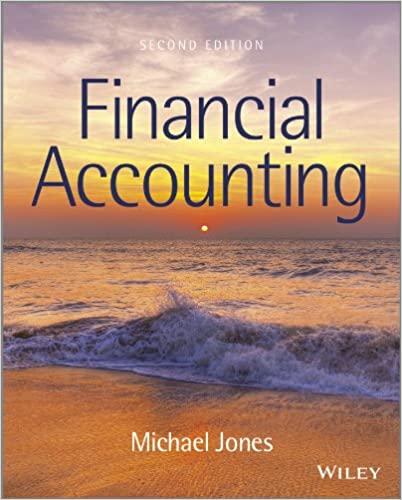Question
QueSTION 1 A contract is unenforceable unless it has a legal purpose. Which of the following would be considered to be an unenfoceable contract? An
QueSTION 1
- A contract is unenforceable unless it has a legal purpose. Which of the following would be considered to be an unenfoceable contract?
|
| An agreement to do a friend's law homework for $25. | |
|
| An agreement to pay interest on a credit card at 2% above the prime rate | |
|
| An agreement between two companies to co-operate in reasearch. | |
|
| An agreement between two companies to fix prices to force a competitor out of business. |
1 points
QUESTION 2
- What is the Parol Evidence Rule?
|
| Contracting parties cannot alter the meaning of their contract through use of contemporaneous oral declarations | |
|
| Contracting parties mutually accept the validity of oral changes to a contract if all parties witnessed the changes. | |
|
| Contracting parties must clearly set out all major terms of the contract, in writing. | |
|
| Contracting parties must mutually provide evidence of any changes they agree to in a contract. |
1 points
QUESTION 3
- A mistake made by only one party to a contract and the other party knows of the mistake, or must be assumed to know is:
|
| A common mistake | |
|
| A unilateral mistake | |
|
| A fraudulent mistake | |
|
| A mutual mistake |
1 points
QUESTION 4
- Restraint of trade contracts are those that curtail certain business activities. Why are they generally not enforced by Courts?
|
| They are against public policy | |
|
| They are secret | |
|
| They are always prohibited by statute | |
|
| They are not specific enough |
1 points
QUESTION 5
- When interpreting a contract, which one of the following will NOT be considered by the Courts?
|
| How the parties have previously conducted similar contracts. | |
|
| What the parties intended the contract to mean. | |
|
| Normal practices within the industry. | |
|
| Intent of the contract as a whole and as written |
1 points
QUESTION 6
- Specific performance should be ordered by the Courts when:
|
| Monetary damages are insufficient or inadequate to compensate the plaintiff. | |
|
| Substantial performance has occurred. | |
|
| Contractual warranties have been breached. | |
|
| The limitation period has expired. |
1 points
QUESTION 7
- A legal principle under which a party should not be obligated to pay, nor should another be allowed to receive, more that the value of the goods and services exchanged, is called:
|
| Quantum meruit | |
|
| Liquidated damages | |
|
| Substantial performance | |
|
| Specific performance |
1 points
QUESTION 8
- What is one necessary element of a contract?
|
| It is fair to all parties. | |
|
| It is written in clear, plain language. | |
|
| Mutual agreement, demonstrated by an offer, acceptance and meeting of the minds. | |
|
| All parties are adults. |
1 points
QUESTION 9
- A contract which can be rescinded or affirmed by one of the parties, at their option is:
|
| Bilateral contract | |
|
| Void contract | |
|
| Implied contract | |
|
| Voidable contract |
1 points
QUESTION 10
- Which of the following may have limited legal capacity to enter into contracts?
|
| All of the options | |
|
| Labour unions | |
|
| Corporations | |
|
| Minors |
Step by Step Solution
There are 3 Steps involved in it
Step: 1

Get Instant Access to Expert-Tailored Solutions
See step-by-step solutions with expert insights and AI powered tools for academic success
Step: 2

Step: 3

Ace Your Homework with AI
Get the answers you need in no time with our AI-driven, step-by-step assistance
Get Started


